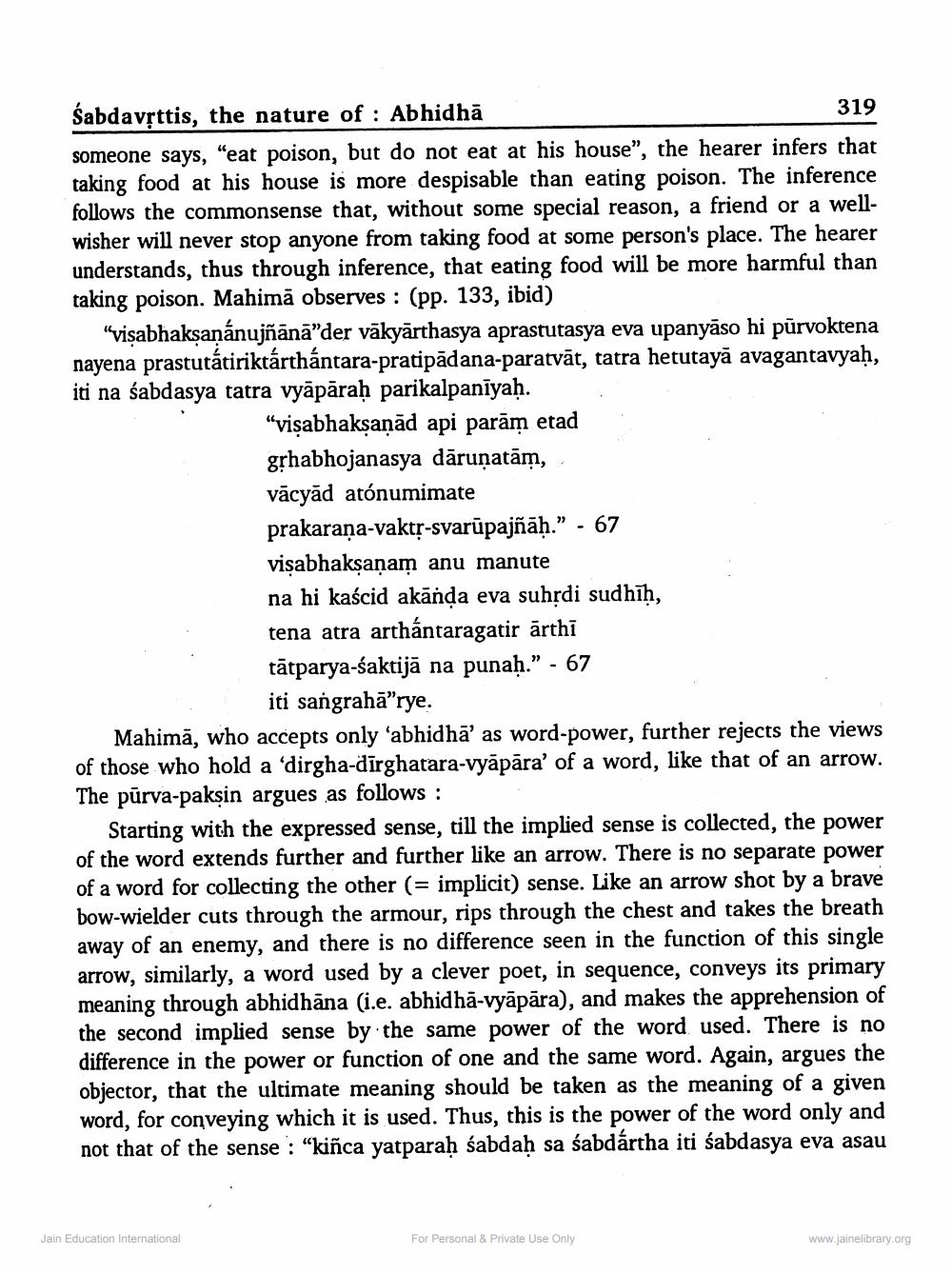________________
Sabdavṛttis, the nature of : Abhidha
319
someone says, "eat poison, but do not eat at his house", the hearer infers that taking food at his house is more despisable than eating poison. The inference follows the commonsense that, without some special reason, a friend or a wellwisher will never stop anyone from taking food at some person's place. The hearer understands, thus through inference, that eating food will be more harmful than taking poison. Mahima observes: (pp. 133, ibid)
"viṣabhakṣaṇánujñānā"der vakyārthasya aprastutasya eva upanyāso hi pūrvoktena nayena prastutatiriktárthántara-pratipadana-paratvāt, tatra hetutaya avagantavyaḥ, iti na śabdasya tatra vyāpāraḥ parikalpanīyaḥ.
"viṣabhakṣaṇād api parām etad gṛhabhojanasya dāruṇatām, vācyād atónumimate
prakaraṇa-vaktṛ-svarūpajñāḥ." - 67 viṣabhakṣaṇam anu manute
na hi kaścid akanḍa eva suhṛdi sudhiḥ, tena atra arthántaragatir ārthī tātparya-śaktijā na punah." - 67 iti sangraha❞rye.
Mahima, who accepts only 'abhidha' as word-power, further rejects the views of those who hold a 'dirgha-dirghatara-vyāpāra' of a word, like that of an arrow. The purva-pakṣin argues as follows:
Starting with the expressed sense, till the implied sense is collected, the power of the word extends further and further like an arrow. There is no separate power of a word for collecting the other (= implicit) sense. Like an arrow shot by a brave bow-wielder cuts through the armour, rips through the chest and takes the breath away of an enemy, and there is no difference seen in the function of this single arrow, similarly, a word used by a clever poet, in sequence, conveys its primary meaning through abhidhāna (i.e. abhidhā-vyāpāra), and makes the apprehension of the second implied sense by the same power of the word used. There is no difference in the power or function of one and the same word. Again, argues the objector, that the ultimate meaning should be taken as the meaning of a given word, for conveying which it is used. Thus, this is the power of the word only and not that of the sense: "kiñca yatparaḥ śabdaḥ sa śabdártha iti sabdasya eva asau
Jain Education International
For Personal & Private Use Only
www.jainelibrary.org




